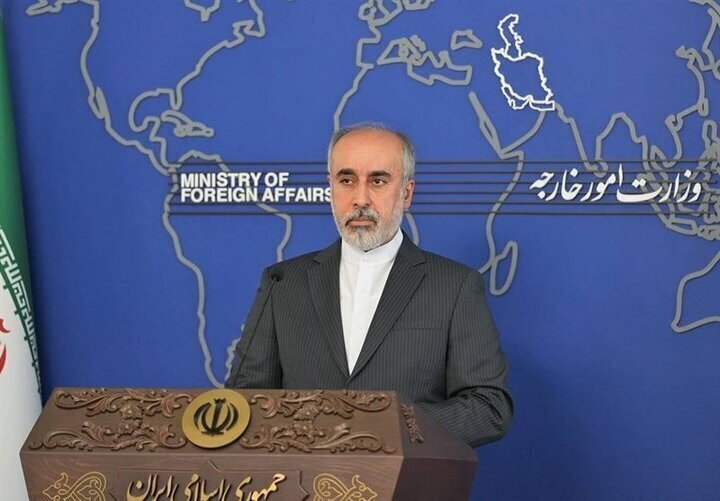Iran condemns Israeli minister’s desecration of Al-Aqsa Mosque

TEHRAN – Iran's foreign ministry spokesman has issued a strong condemnation of the deliberate desecration of the Al-Aqsa Mosque by a far-right Israeli minister, Itamar Ben-Gvir, and Zionist settlers.
Nasser Kanaani asserted that this provocative act reflects the Israeli regime's intentions to escalate tensions in the already volatile region.
In a statement made on Tuesday, Kanaani emphasized that this "evil act" reveals the true motives of the Israeli leadership, who are stoking conflict by deliberately offending the religious sentiments of Muslims in Palestine and across the Islamic world.
According to him, these actions are part of a broader strategy to fuel ongoing hostilities and destabilize the region.
Kanaani further called on the United States and other Western nations to demonstrate their claimed commitment to security and stability in the West Asia by taking immediate action against the "criminal Zionist regime."
He urged these countries to intervene to end the ongoing genocide in Gaza and curb Israel's aggressive policies in Palestine and the wider region.
The Iranian spokesperson had previously expressed his outrage over the incident on his X account, formerly known as Twitter, describing the desecration as a blatant violation of Islamic sanctities and an assault on the rights of Muslims worldwide.
He warned that this act of provocation is designed to increase instability and heighten tensions in the region.
Kanaani's post on X also called for a global response, particularly from Islamic governments and Muslim nations, to condemn and address these illegal actions. He reiterated that the international community has an urgent responsibility to put a stop to Israel’s actions, which he argued violate international law and threaten peace.
The controversy erupted earlier on Tuesday when Itamar Ben-Gvir, a prominent far-right Israeli minister, visited the Al-Aqsa Mosque, Islam’s third holiest site, and made remarks suggesting that Jews should be allowed to pray there, despite existing agreements that restrict such activities to mere visits.
This visit, along with the presence of approximately 2,250 Zionist settlers at the mosque, has sparked widespread condemnation and concern, as it is seen as a direct challenge to the decades-long status quo that governs the site.
